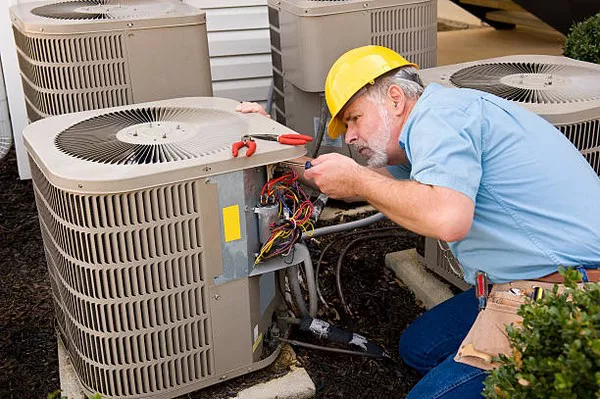Air compressors are essential tools in various industries and home workshops, providing the power needed for pneumatic tools, painting, inflating tires, and more. However, encountering a situation where your air compressor won’t turn on can be frustrating and disruptive. Understanding the potential causes behind this issue can aid in swift troubleshooting and ensure you can get back to work quickly.
Common Causes for Air Compressor Failure to Start
1. Power Supply Issues
One of the first areas to inspect when an air compressor fails to start is the power supply. Issues with the electrical supply can stem from various factors, including:
Power Cord Problems: Inspect the power cord for any visible damage or wear. A frayed or broken cord can prevent the compressor from receiving power.
Tripped Circuit Breaker: Air compressors draw a significant amount of current, which may cause the circuit breaker to trip. Check your electrical panel and reset the breaker if necessary.
Faulty Outlet: Test the outlet with another device to ensure it’s functioning correctly. If the outlet is dead, consider contacting an electrician to diagnose and resolve the issue.
2. Pressure Switch Malfunction
The pressure switch is a critical component of the air compressor, regulating the system’s pressure. If this switch is faulty, the compressor may not engage. Signs of a malfunctioning pressure switch include:
Stuck Contacts: The contacts may become stuck due to dirt or wear, preventing the compressor from starting.
Incorrect Settings: Ensure the pressure switch settings are correctly configured. If they are set too low or too high, the compressor may not start.
3. Safety Features Activation
Air compressors are equipped with safety features to protect the unit and the user. These features can sometimes prevent the compressor from starting if certain conditions are not met:
Overload Protection: If the motor overheats, the overload protection may activate, shutting down the compressor until it cools. Allow the unit to cool for a while before attempting to restart.
Low Oil Shutdown: Many compressors have low oil sensors that prevent operation if oil levels are insufficient. Check the oil level and top up as needed.
4. Faulty Starter Components
The starter components are crucial for the initial operation of the compressor. Any failure in these components can lead to startup issues:
Start Capacitor Failure: The start capacitor helps provide the necessary boost to start the motor. If it fails, the compressor may hum but not turn on. Inspecting and replacing the capacitor can resolve the issue.
Contactor Failure: The contactor is a switch that connects the compressor motor to the power supply. A faulty contactor can prevent the motor from receiving power. Testing or replacing the contactor may be necessary.
5. Motor Issues
The compressor motor itself may be the source of the problem. Common motor-related issues include:
Burned-Out Motor: A motor that has burnt out will not turn on. Signs of a burned-out motor include a strong burnt smell or visual signs of damage. Replacing the motor is often the only solution.
Blocked Motor: Dust, debris, or other obstructions can prevent the motor from turning. Regular maintenance, including cleaning, can help prevent this issue.
6. Check Valve Problems
The check valve prevents air from flowing back into the compressor when it is turned off. If the check valve is stuck open or malfunctioning, it can lead to an inability to build pressure, thereby preventing the compressor from starting.
Signs of Check Valve Failure: A hissing noise when the compressor is off can indicate air leakage through the check valve. Inspection and replacement of the valve may be necessary to restore functionality.
7. Environmental Factors
Sometimes, environmental conditions can impact the operation of an air compressor. Factors such as temperature and humidity can affect the compressor’s performance:
Cold Temperatures: In extremely cold conditions, the oil may thicken, making it difficult for the compressor to start. Consider using a compressor heater or storing the unit in a warmer location.
High Humidity: Excessive humidity can lead to moisture buildup inside the compressor, potentially causing electrical issues. Ensuring proper ventilation can help mitigate this risk.
8. General Maintenance Neglect
Regular maintenance is key to ensuring the longevity and reliability of your air compressor. Neglecting maintenance tasks can lead to various issues, including those that prevent startup:
Dirty Air Filters: Clogged air filters can restrict airflow and lead to performance issues. Regularly check and replace filters as needed.
Oil Changes: Regular oil changes (for oil-lubricated compressors) are crucial for optimal operation. Neglecting this can result in increased wear and potential failure to start.
Troubleshooting Steps
If you find your air compressor not turning on, follow these troubleshooting steps:
Check the Power Supply: Ensure the compressor is plugged in, and check the power source and outlet functionality.
Inspect the Pressure Switch: Look for any signs of damage or misconfiguration and adjust settings as necessary.
Examine Safety Features: Confirm that overload and low oil protection features are not activated.
Test Starter Components: Inspect the start capacitor and contactor for signs of failure.
Assess the Motor: Check for any visible damage or overheating signs.
Evaluate the Check Valve: Listen for air leaks and inspect for blockages.
Consider Environmental Conditions: Evaluate whether temperature or humidity may be impacting performance.
Perform Maintenance Checks: Review maintenance logs and conduct any necessary upkeep.
See Also A Comprehensive Guide on Using Your Air Compressor Effectively
Conclusion
Understanding the potential causes of an air compressor not turning on is essential for effective troubleshooting. By systematically checking each component and considering environmental factors, you can quickly identify the issue and take appropriate action. Regular maintenance will also enhance the longevity and reliability of your compressor, reducing the likelihood of future failures. Should troubleshooting efforts not resolve the problem, consulting a professional technician may be the best course of action to ensure proper repair and safety.

